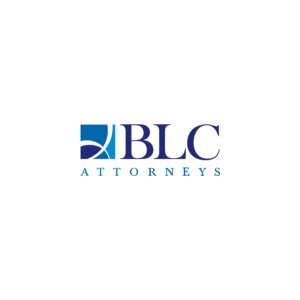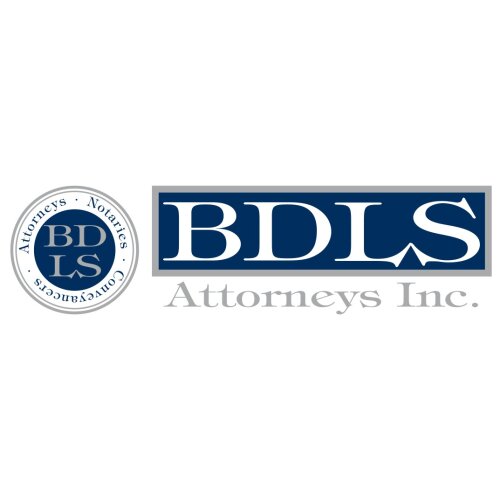Best Restructuring & Insolvency Lawyers in Port Elizabeth
Share your needs with us, get contacted by law firms.
Free. Takes 2 min.
List of the best lawyers in Port Elizabeth, South Africa
South Africa Restructuring & Insolvency Legal Articles
Browse our 2 legal articles about Restructuring & Insolvency in South Africa written by expert lawyers.
- Cross-Border Insolvency: Protecting Assets in South Africa
- Legal Framework: South Africa governs cross-border insolvency through the Cross-Border Insolvency Act 42 of 2000, which incorporates the UNCITRAL Model Law. Mandatory Recognition: Foreign liquidators or "representatives" have no standing to deal with South African assets until they obtain a formal recognition order from a South African High Court. COMI... Read more →
- Business Rescue Proceedings in South Africa for Directors
- Business rescue is a formal rehabilitation process designed to save "financially distressed" companies from liquidation. A general moratorium is triggered immediately, providing legal protection against creditor claims and asset seizures. The Business Rescue Practitioner (BRP) takes full management control of the company, effectively displacing the board's autonomous authority. Directors face... Read more →
About Restructuring & Insolvency Law in Port Elizabeth, South Africa
Restructuring and insolvency law in Port Elizabeth, South Africa guides individuals and businesses through the legal process when they struggle to manage financial obligations. This area of law helps debtors and creditors find viable solutions, whether through reorganisation of debt, business rescue, liquidation or sequestration. As Port Elizabeth is a major port city with a diverse commercial sector, restructuring and insolvency matters often arise among local businesses and individuals facing financial pressures.
Why You May Need a Lawyer
There are various scenarios where you may need a restructuring and insolvency lawyer in Port Elizabeth:
- You own a business that is unable to pay its creditors and needs to explore business rescue or liquidation options.
- You are an individual who cannot pay personal debts and are facing pressure from creditors seeking sequestration.
- You are a creditor needing to recover debts from insolvent individuals or businesses, and must understand your legal rights and remedies.
- You are a stakeholder or employee affected by a company going through insolvency or restructuring procedures.
- You need advice on restructuring debt, negotiating with creditors, or navigating court processes related to insolvency.
Legal advice ensures you follow the correct legal procedures, protect your interests and comply with South African law.
Local Laws Overview
South African restructuring and insolvency laws are primarily governed by the Insolvency Act 24 of 1936 and the Companies Act 71 of 2008. In Port Elizabeth, as in the rest of South Africa, these laws set out procedures for:
- Sequestration: The legal process for declaring an individual insolvent.
- Liquidation: The winding-up of insolvent companies or close corporations.
- Business Rescue: A process allowing financially distressed companies to restructure under supervision, with the goal of returning to solvency.
- Debt Restructuring: Options for individuals and companies to reorganise debts, often through negotiation or statutory processes like debt review for consumers.
Court oversight is required for most formal insolvency proceedings, and local high courts in Port Elizabeth have jurisdiction over such matters. The law seeks to balance the interests of debtors, creditors and other stakeholders, and failing to comply with legal requirements can have serious consequences.
Frequently Asked Questions
What is the difference between business rescue and liquidation?
Business rescue is a process aimed at helping a financially distressed company restructure its affairs and continue operating if possible. Liquidation, on the other hand, involves winding up the company, selling off assets, and distributing the proceeds to creditors before the company is dissolved.
Can individuals apply for insolvency?
Yes, individuals who are unable to pay their debts may apply for voluntary sequestration. This process is designed to help honest debtors settle debts through the sale of assets and provides a measure of relief from creditor pressure.
How long does the insolvency process take in Port Elizabeth?
The timeline varies depending on the complexity of the case, court schedules and how quickly all required information is provided. Business rescues can be completed in months, while sequestrations and liquidations may take longer.
What are the consequences of being declared insolvent?
For individuals, insolvency may affect your ability to obtain credit, hold certain positions or operate a business. For companies, liquidation leads to closure and winding up of operations. Both individuals and businesses face limitations on managing assets during insolvency.
What role do creditors play in insolvency proceedings?
Creditors must be notified of insolvency proceedings and may submit claims to recover debts. They often participate in meetings and decisions regarding the management or distribution of assets in both liquidation and sequestration processes.
Can employees claim outstanding salaries during insolvency?
Yes, employees are given preferential status for certain outstanding salaries, leave pay and related claims, typically ranking above unsecured creditors in terms of payment from available funds.
What is debt review and how does it differ from insolvency?
Debt review is a statutory process under the National Credit Act that allows over-indebted consumers to restructure debt payments with the help of a registered debt counsellor, often avoiding formal insolvency or sequestration procedures.
Do I need to appear in court during insolvency proceedings?
In most insolvency cases, especially sequestration and liquidation, court involvement is required. Your lawyer will guide you as to when and if you need to personally appear, depending on the circumstances of your case.
Is it possible to save my business from liquidation?
Yes, if your business is financially distressed but potentially viable, business rescue proceedings or negotiated restructuring with creditors may help avoid liquidation and allow you to continue operations.
Can I be held personally liable for my company’s debts?
Generally, directors and shareholders are not personally liable for company debts unless there is evidence of reckless trading, fraud or personal sureties signed in favour of creditors. Legal advice is crucial in determining your exposure.
Additional Resources
- Master of the High Court, Port Elizabeth: Handles insolvency estates and related queries.
- South African Law Society: Provides resources for finding legal practitioners with experience in restructuring and insolvency law.
- Companies and Intellectual Property Commission (CIPC): Assists with business rescue and matters involving company liquidation.
- National Credit Regulator (NCR): Oversees the regulation of debt counsellors and the debt review process for consumers.
- Nelson Mandela Bay Metropolitan Municipality: Can guide residents on accessing support or navigating municipal processes during insolvency.
Next Steps
If you suspect you or your business may face insolvency or require restructuring, take these steps:
- Keep all your financial records and correspondence with creditors organised and accessible.
- Seek early advice from a lawyer experienced in restructuring and insolvency law to understand your options and legal obligations.
- Act promptly, as legal deadlines and creditor actions can limit your choices if you delay.
- If you have received court papers or are facing creditor claims, contact a legal practitioner immediately for urgent assistance.
- Consider consulting with an insolvency practitioner, accountant, or other financial professional alongside your lawyer to develop the most suitable solution for your circumstances.
Professional guidance is crucial for protecting your interests and achieving the best possible outcome under South African law.
Lawzana helps you find the best lawyers and law firms in Port Elizabeth through a curated and pre-screened list of qualified legal professionals. Our platform offers rankings and detailed profiles of attorneys and law firms, allowing you to compare based on practice areas, including Restructuring & Insolvency, experience, and client feedback.
Each profile includes a description of the firm's areas of practice, client reviews, team members and partners, year of establishment, spoken languages, office locations, contact information, social media presence, and any published articles or resources. Most firms on our platform speak English and are experienced in both local and international legal matters.
Get a quote from top-rated law firms in Port Elizabeth, South Africa — quickly, securely, and without unnecessary hassle.
Disclaimer:
The information provided on this page is for general informational purposes only and does not constitute legal advice. While we strive to ensure the accuracy and relevance of the content, legal information may change over time, and interpretations of the law can vary. You should always consult with a qualified legal professional for advice specific to your situation.
We disclaim all liability for actions taken or not taken based on the content of this page. If you believe any information is incorrect or outdated, please contact us, and we will review and update it where appropriate.










